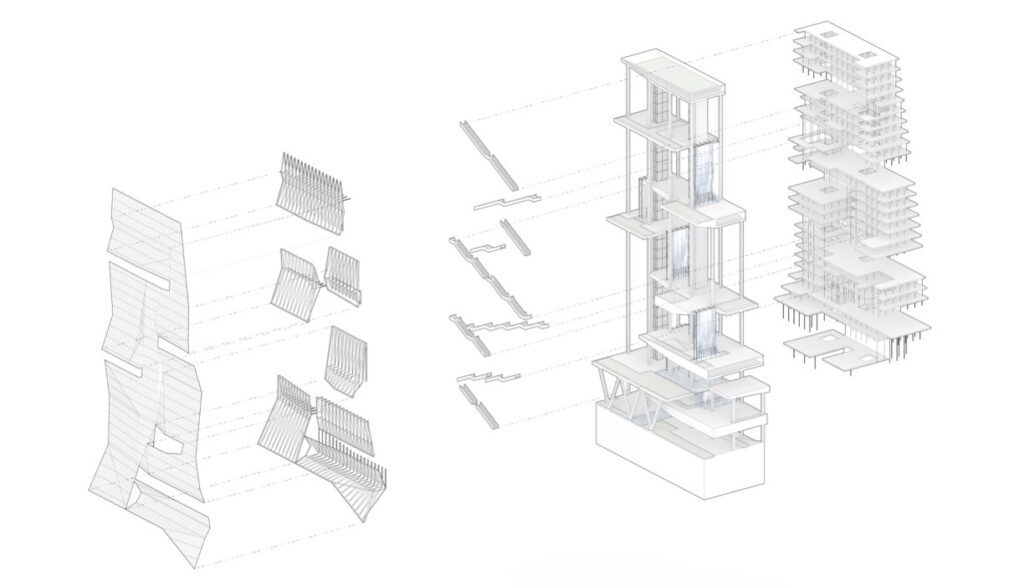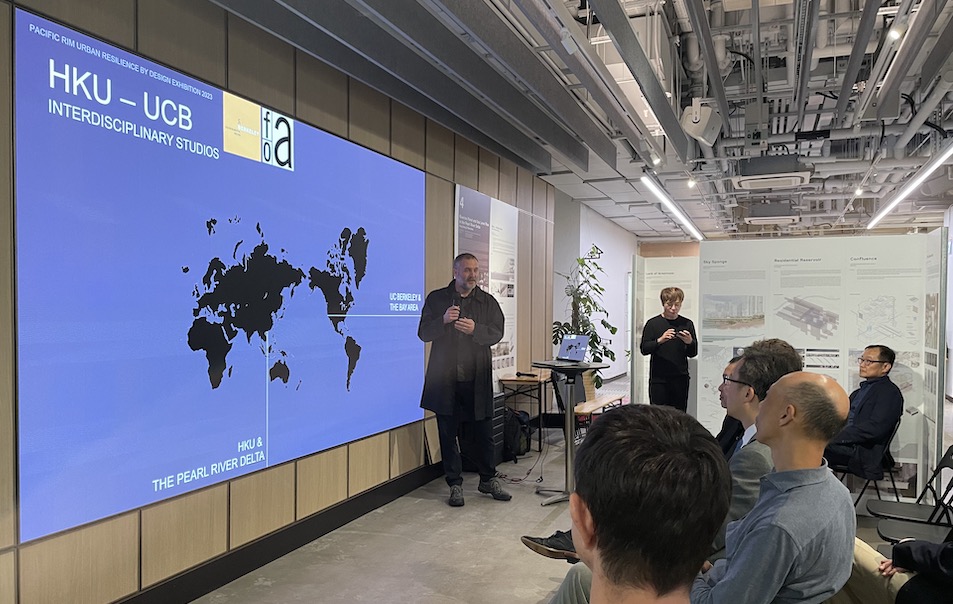Pacific Rim Urban Resilience by Design

Addressing Emergent Challenges
The Pacific Rim Urban Resilience by Design is a four-year multidisciplinary project focused on comparative analysis and design of regions and sites surrounding the Pearl River Delta and the San Francisco Bay. The combination of research seminars and design studios offers a unique collaboration between the University of Hong Kong Faculty of Architecture and the UC Berkeley College of Environmental Design.
The focus of the research studios and seminars is improving Pacific Rim urban resilience through urban policy, planning, and design to help these metropolitan regions adapt to climate change by becoming more energy-efficient and livable for residents. Hong Kong is grappling with the emergent challenges of climate change and potential policy, planning and design responses while experts in the Bay Area have also been working to develop design strategies related to resilience. Our objective is to study, speculate, and offer prototypical design strategies in four areas of resilience planning that hold the potential to move public discussion forward in both metropolitan regions.
The studio’s generous sponsors have made this project possible.
Research Themes
- Decentralize energy production and use, and to reduce a region’s ecological footprint.
- Underutilized urban open space resources that can provide ecosystem services (habitat, water infiltration, air quality improvement, etc.) as well as improve everyday urban livability for residents.
- Transportation integration, in particular the implications of connected autonomous vehicles, ‘last mile’ modalities, and other rapidly changing transportation technologies on daily life.
Seminar and Studio Formats
Each year, students from the University of Hong Kong travel to the Bay Area and students from UC Berkeley visit Hong Kong to conduct field work, meet with policy-makers and stakeholders, and work collaboratively on respective projects via in-depth presentations, reviews and exhibitions.
Fall 2018 Research Seminar
In general, the fall seminars engage graduate students in systematic research and data analysis on a particular topic. This research might entail the spatial analysis of open space or solar resources, current policies related to these resources, and best practices for utilization of such resources developed elsewhere in the world.
The first year is titled Greater Bays: Adapting to Rapid Change. Students at UC Berkeley and the University of Hong Kong will work on gathering data, histories and stories of change in shared formats, as well as developing representations that emphasize rates of transformation in our water systems. A focus will be on identifying metrics, systems and narratives that are changing so rapidly as to disrupt our current ways of designing the built environment. The seminar will develop ways to communicate this change to public agencies and stakeholders as well as develop hypotheses on how change can be transformed, accommodated or resisted.
Spring 2019 Design Studio
The spring studios are interdisciplinary with graduate students from architecture, landscape architecture, city and regional planning as well as urban design and engineering. The HKU students will work on Bay Areas sites and CED students will work on Pearl River sites. Based on the work of the Fall Research Seminar, the studios will propose solutions and speculations to a particular site or set of sites in Hong Kong and the Bay Area, with the aim of producing schemes for buildable projects that affect and are effected by change.
The studios and seminars will:
- Publish reports on urban analytical and policy research, best-practice case studies, and recommendations for policy makers and the public..
- Design exhibits and buildable design proposals, including site analyses, design drawings and models, and small-scale constructed prototypes or demonstration projects.
- Coordinate public exhibitions featuring stakeholder panels and public roundtables, with participation from key Berkeley and HKU faculty as well as public and private sector leaders.
Spring 2023

In March 2023, the collaborative work of CED with HKU students was exhibited in the Central Market in Hong Kong.